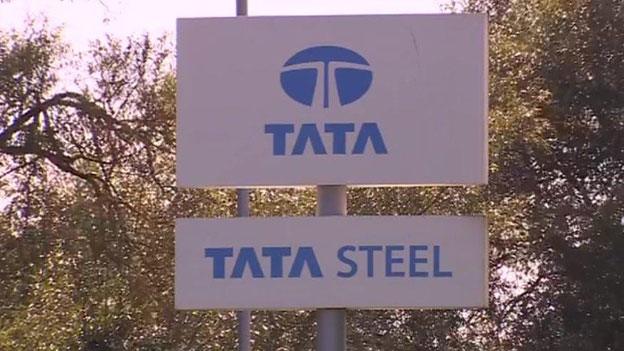Steel industry crisis: MP nervous for future of Welsh plants
- Published
Alan Coombs of the Community union says the industry in Wales is fighting for survival
A Welsh MP has said she is nervous about the future for the steel industry in Wales in the face of collapsing prices and cheap imports from China.
Cardiff Central MP Jo Stevens was on a Commons committee which said the UK government had taken little action to tackle the crisis.
The MP said Wales had been "relatively unscathed" in a year when steel plants closed in England and Scotland.
But she said the industry would always be "on the back foot" without support.
Alan Coombs of the Community union in south Wales said the industry was "fighting for survival".
At least 4,000 jobs have been lost in the UK industry over the last few months, with the blame laid on falling demand, competition from China, high electricity costs and a strong pound.
Steel producers have asked for help to reduce high energy bills and business rates.
The Commons business, industry and skills committee said ministers had been slow to act compared to other EU nations.
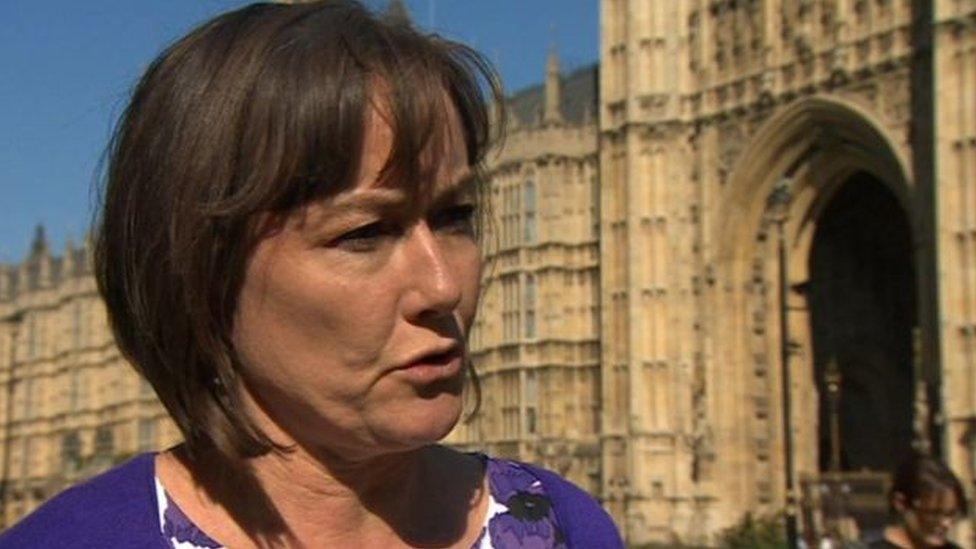
The Labour MP said she was worried big plants in Wales may suffer unless there was a "proper industrial strategy" from the UK government.
In 2015, Tata Steel announced plans to mothball some operations at Llanwern, Newport, where unions fear 250 jobs will go, and Shotton, Flintshire, where it is claimed 40 jobs could be affected.
But Ms Stevens feared worse could come.
"I'm nervous about Tata in the future - we've managed to get through this period reasonably unscathed in comparison with Redcar and Scunthorpe," she told BBC Radio Wales on Monday, referring to two plants in England which were closing.
"They're not asking for taxpayer bailouts, they're simply asking for a level playing field, and without that we're always going to be on the back foot.
"My worst fear would be that we stop steel making in Wales - I don't think it will happen if we take the right steps now.
"This is a committee with an in-built Conservative majority on it, and the committee found that the government has done too little too late."
The UK government said it had taken "clear action" on relief for energy costs, anti-dumping, procurement and EU emissions directives.
UK Business Minister Anna Soubry said EU state aid rules were very complicated and they had looked at them in fine detail.
"We've also looked at what other countries do because there's been a bit of a mythology that other countries are doing more than us," she said.
"But I'm confident we've done everything and that we understand the state aid rules. It's important we do the right thing by steel, especially in Wales and that's what we'll continue to do."
A Tata Steel spokesman said the committee "quite rightly highlights the need for more to be done to create a level playing field for the UK steel industry".
"Though a welcome step was taken last week to compensate for high energy taxes, the Committee's report demonstrates urgent action is needed on trade, business rates, and making sure new procurement guidelines deliver," he added.

Analysis by Sarah Dickins, BBC Wales economics correspondent
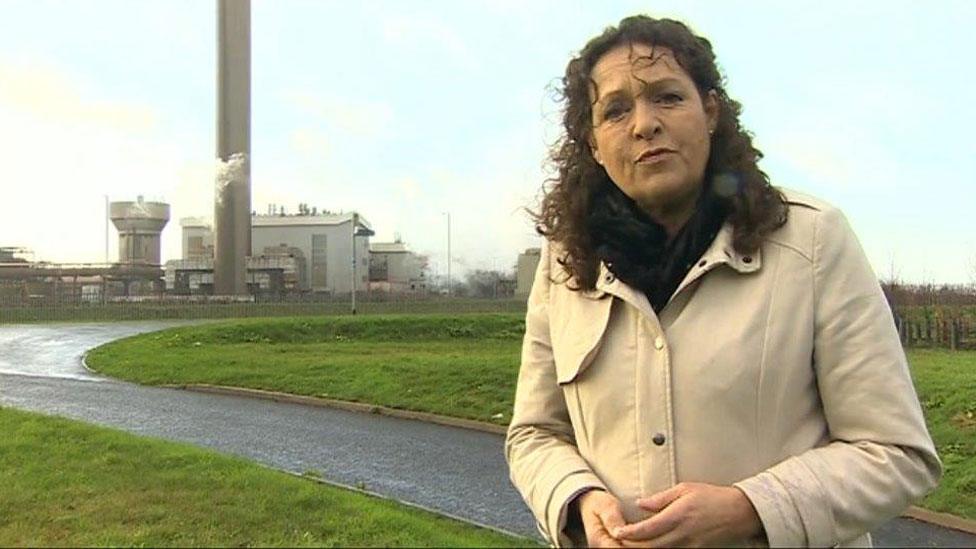
This is a really significant report from the Commons business committee., external For 10 years, management and unions have been battling against the high cost of energy and have been calling for support from successive UK governments.
The steel industry says it has not had that help. Since then they have been hit by other problems. Less steel is being used around the world since the recession, cheaper steel is coming into Wales, and the high strength of the pound means steel made here is more expensive to export.
Tata employs 6,000 people in Wales and puts £200m a year into the economy in salaries.
But Port Talbot is losing millions of pounds a week. There is only so long a company, even one as big as Tata, can put up with it.
It wants an equal strategy for energy and manufacturing, an approach adopted in some other parts of Europe.
Other countries have found ways around supporting the industry without breaking European rules.
- Published21 December 2015
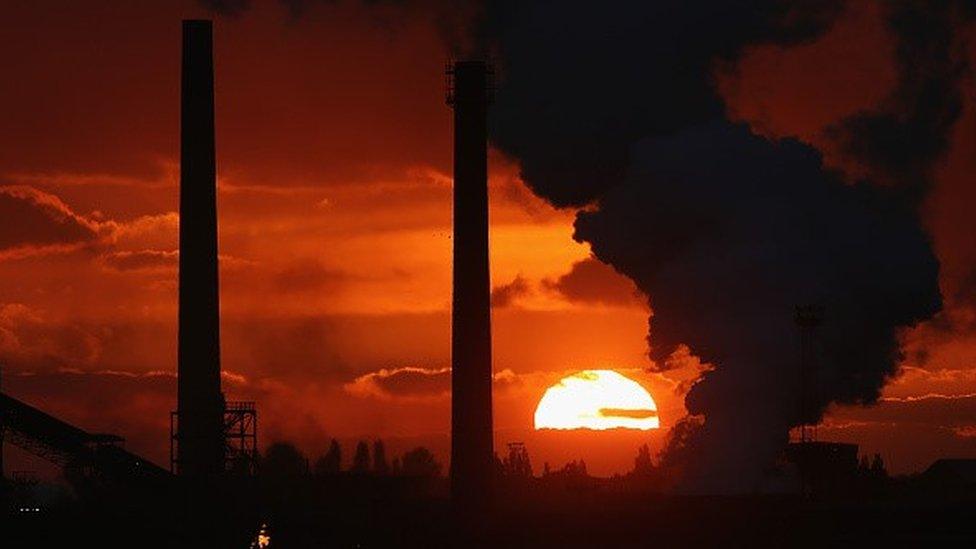
- Published16 December 2015
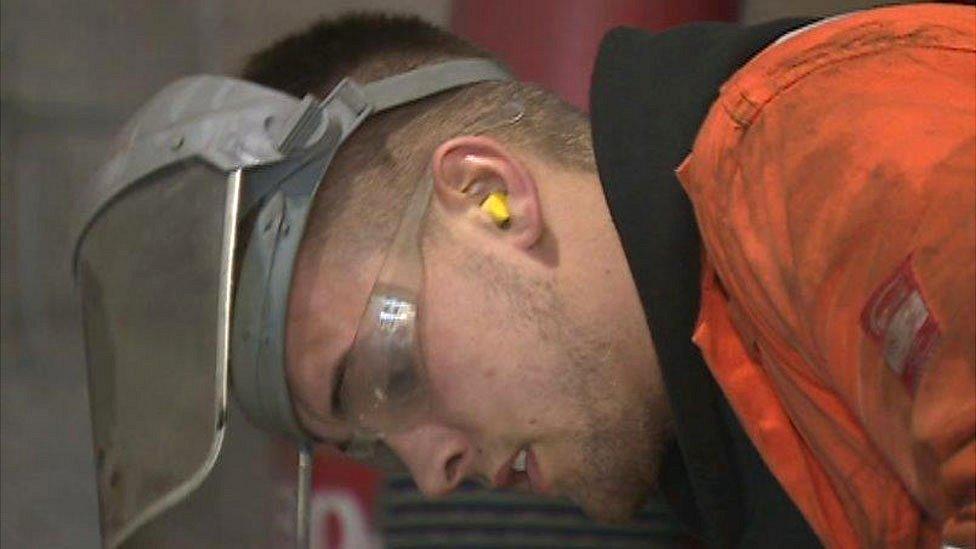
- Published5 November 2015
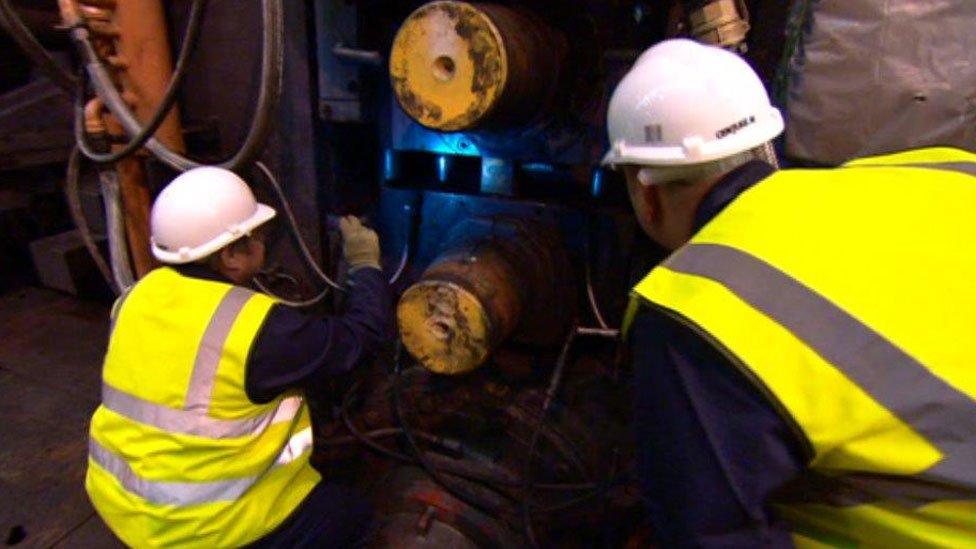
- Published28 October 2015
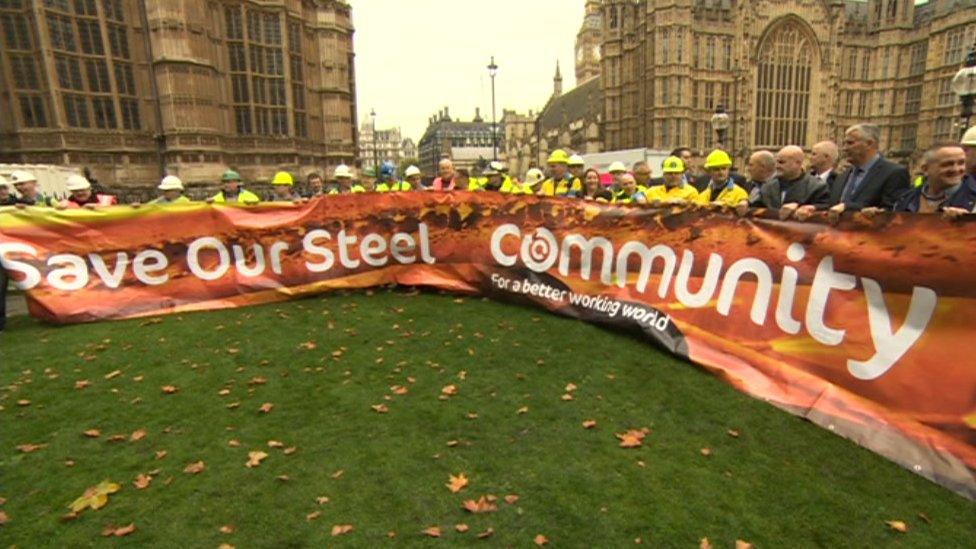
- Published26 August 2015
